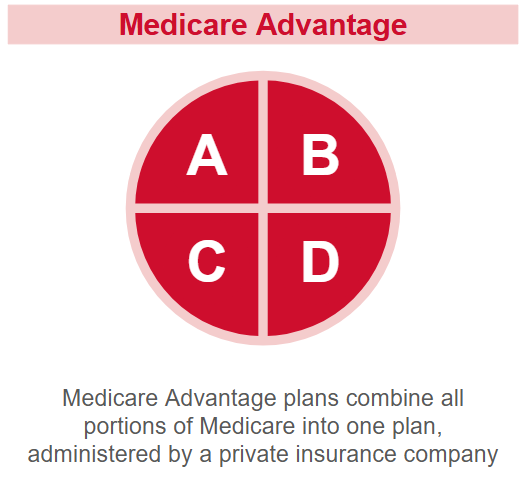Choosing Part C: How to know if Medicare Advantage or Medicare Supplement is right for you
- Oct 19, 2025
- 3 min read
Whether you are first signing up for Medicare or considering a change to a new plan, navigating the choice between a Medicare Supplement plan and a Medicare Advantage Plan can be daunting.
When you first sign up for Medicare, you will quickly come to learn that Original Medicare (Parts A & B) do not cover everything. Despite paying a lifetime of Medicare taxes and a monthly premium ($206 for most people in 2026), Parts A and B only end up covering about 80% of your total medical costs, leaving you exposed to the remaining 20% with no cap or maximum. To address this exposure, you have two main options: Medicare Advantage plans and Medicare Supplement plans. They both effectively protect you from ballooning healthcare costs, but they work in fundamentally different ways.
What are Medicare Advantage Plans?
Medicare Advantage plans, also known as Part C, are an alternative way to receive your Medicare Benefits. Instead of getting health coverage directly from the Federal Government, you enroll in a private insurance plan that contracts with Medicare to administer your federally-entitled benefits, and usually more.

In exchange administering your Medicare benefits, the private insurance company is paid (generously) by the Federal Government every month, allowing the plan to offer attractive benefits like low monthly premiums (often as low as $0), prescription drug coverage, dental, vision, and hearing. Some even provide gym memberships and flexible spending cards.
There is, however, a trade off for these benefits. Medicare advantage plans are usually offered as an HMO or a PPO plan, meaning you will have a defined network of doctors and hospitals covered by the plan. Further, your primary care doctor will need to give you a referral to see specialists, and some services may require a prior-authorization. The plan will also charge co-pays or co-insurance every time you need a medical service, up to the plan's maximum-out-of-pocket (typically $4,000 - $8,000 per year, depending on the plan.
What are Medicare Supplement Plans?
Medicare Supplement Plans, also known as Medigap, take an entirely different approach. Instead of replacing original Medicare (Parts A & B), Supplement plans work alongside the coverage offered by the Federal Government and offer protection for the 20% co-insurance and deductibles you would generally need to pay if only using Parts A & B.

Supplement plans are standardized, meaning the plan offered by each company is required to be exactly the same as the plan offered by any other. There are ten different plan types available, though Plan G and Plan N are the most popular. The only differences allowed between each company's plan is the monthly premium, which can be significantly higher than a Medicare Advantage plan. Supplement plans do not typically include dental, vision, hearing, or other ancillary benefits. They also do not include prescription drug coverage, though many $0 per month drug plans are available in most markets.
In exchange for the higher monthly premiums and lower ancillary benefits, Supplement Plans offer immense freedom compared to Medicare Advantage Plans. They are not bound by networks and do not require referrals to see specialists. With a Supplement plan, you may see any doctor in the country who accepts Medicare and has an appointment available. Plan G even offers international travel coverage, making it an appealing choice for those who travel frequently.
Making your Choice
There is no "right" answer in the choice between Medicare Supplement Plans and Medicare Advantage Plans, only what's right for your lifestyle and needs. Depending how often you visit the doctor and your physician's network, a Medicare Advantage Plan could offer substantial savings. At the same time, those who travel often or often visit the doctor could find the predictable and flexible coverage of a Supplement to be highly appealing. The best way to navigate the choice between plans is to consult with an experienced professional who can help to see how each plan will fit into your life in retirement.


Comments